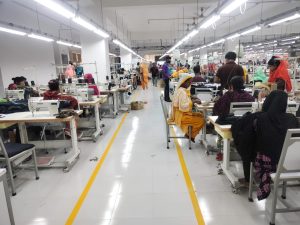The ready-made garment (RMG) industry is the backbone of the Bangladesh economy, accounting for over 80% of the country’s exports.
In recent years, there has been a significant focus on improving compliance in the RMG sector, in order to ensure that workers’ rights are protected and that the industry is sustainable.
In 2013, the Rana Plaza factory collapse killed over 1,100 people and injured thousands more. This tragedy led to a renewed focus on compliance in the RMG sector, and a number of initiatives were launched to improve safety and working conditions.
One of the most important initiatives was the Accord on Fire and Building Safety in Bangladesh, which was signed by over 200 global brands and retailers. The Accord established a framework for independent fire and building safety inspections of RMG factories in Bangladesh.
The Accord was set to expire in 2021, but it was extended for another year due to the COVID-19 pandemic. In 2022, the Accord was replaced by the Ready-Made Garments Sustainability Council (RSC), which is a multi-stakeholder initiative that aims to ensure the long-term sustainability of the RMG sector in Bangladesh.
The RSC has a number of goals, including:
- Improving fire and building safety
- Promoting decent work and social protection
- Reducing environmental impacts
- Promoting good governance
The RSC is a significant step forward in the journey towards compliance in the RMG sector in Bangladesh. However, there is still much work to be done. The RSC will need to continue to work with factories, brands, and other stakeholders to ensure that all workers in the RMG sector are treated fairly and that the industry is sustainable.
In addition to the RSC, there are a number of other initiatives that are working to improve compliance in the RMG sector in Bangladesh. These include:
- The Better Work programme, which is a joint initiative of the International Labour Organization (ILO) and the International Finance Corporation (IFC)
- The Bangladesh Garment Manufacturers and Exporters Association (BGMEA)
- The Bangladesh Knitwear Manufacturers and Exporters Association (BKMEA)
These initiatives are working to improve compliance in a number of areas, including:
- Labour rights
- Health and safety
- Environmental protection
- Business ethics
The progress that has been made in recent years is encouraging, but there is still much work to be done. The RMG sector in Bangladesh is a major economic driver, and it is important that it is sustainable and that workers’ rights are protected. The initiatives that are currently underway are making a difference, and they will need to continue to be supported in order to achieve the goal of full compliance.
What does the future hold for garments compliance in Bangladesh?
The future of garments compliance in Bangladesh is bright. The government, brands, and other stakeholders are committed to improving compliance, and there are a number of promising initiatives underway.
In the coming years, we can expect to see further improvements in fire and building safety, decent work, and environmental protection. We can also expect to see more transparency and accountability in the RMG sector.
As the global apparel market continues to grow, Bangladesh is well-positioned to become a leader in sustainable and ethical garment production. With continued commitment to compliance, the RMG sector in Bangladesh can continue to be a major economic driver and a source of pride for the country.


